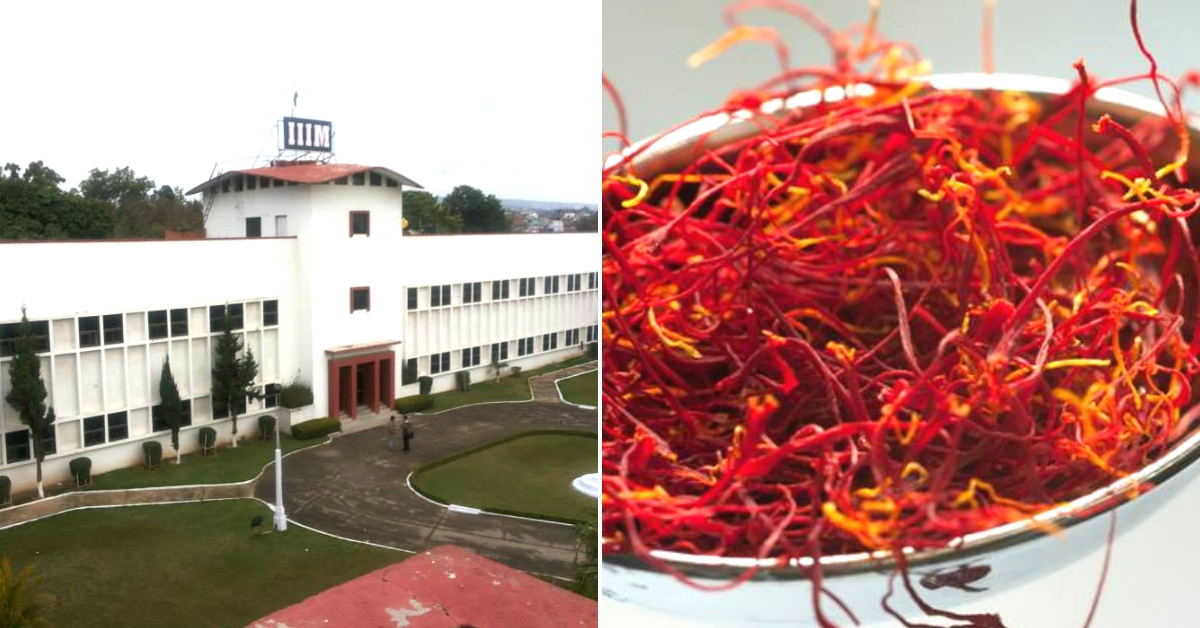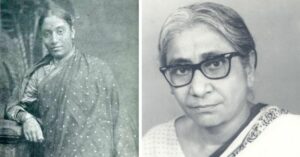Can Saffron Fix Alzheimer’s? Scientists Find Golden Link Between Spice & Cure
Saffron, a common ingredient in our food, may hold the secret cure to Alzheimer's and other neurodegenerative diseases.

Who doesn’t love biriyani? And what about kesar halwa? Well, saffron, the spice common to both dishes, is known for the incredible flavour and depth it imparts to sweet and savoury recipes.
And now, it can fight the onset and progress of Alzheimer’s disease, and dementia reports the Deccan Herald!
After five years of hard work, researchers at the Indian Institute of Integrative Medicine (IIIM) in Jammu, have identified a chemical which shows unique properties to protect the brain cells and delay the onset of neurodegenerative diseases.

The number of patients with neurodegenerative diseases like Alzheimer’s and Dementia is rising around the world, and both are being considered as important public health issues. The India Ageing Report 2017 shows that our elderly population is growing at a rate of 3% each year. The number of elderly Indians living with Alzheimer’s is expected to triple by 2050 to reach 4.6 million cases, up from 1.6 million in 2015.
The statistics make these age-related diseases a legitimate scare for India.
The Jammu-based institute identified the critical compound (IIIM-141) to battle these diseases, from the stigma of a saffron flower. This was part of a CSIR initiative to discover drugs and nutritional supplements from Indian plants. Once identified, the active molecule was tested for its preventive and therapeutic role against neurodegenerative diseases.
The formulation ensures a slow release of the active ingredients, ensuring that the bio-active constituent in the saffron reaches the brain, thereby enhancing the clearance of toxic beta-amyloid plaques from the brain, hence protecting the neurons.
Speaking to Deccan Herald, Ram Vishwakarma, the Director of IIIM, said “The nutraceutical would be launched in the US Market, as a dietary supplement during October-November. It would be available in the form of an oral capsule, that people who are more than 40 years of age will need to take twice a day. After six months, this product will come to India.”
He also added that the US Food and Drug Administration (US-FDA) has approved the product as a dietary supplement, and there are plans to carry out clinical trials in association with a US-based firm, to bring out a medicine using the same chemical.
IIIM is not alone when it comes to espousing the various benefits of saffron. According to this study published in the journal Antioxidants, saffron and turmeric can be considered as a promising alternative treatment for neurodegenerative diseases and can be equally effective as Donepezil, a medication used in the palliative treatment of Alzheimer’s disease.
Additionally, in a study published in the journal Psychopharmacology, a 22-week double-blind control trial was conducted to compare the effects of a tablet with saffron extracts against Donepezil, as a treatment for subjects with mild to moderate Alzheimer’s. Participants in the trial were randomly administered either a 30mg/day tablet of saffron, or a 10 mg/day of Donepezil.
The results of the study at the end of the trial showed that the ‘antioxidant and antiamyloidgenic’ abilities of saffron had a similar effect in the improvement of cognitive function in subjects with Alzheimer’s, as Donepezil.
You may also like: Artificial Intelligence For Early Detection of Alzheimer’s? Indian Scientists Say Yes!
In this regard, it is also interesting to note the curious case of Ballabgarh, a rural town in Northern India, which has the lowest rate of Alzheimer’s in the world—only 0.62% of people above the age of 55, and 1.07% above the age of 65 suffer from the disease. According to this source, the spices consumed in the Indian diet may be the reason for the low incidence rate of the disease.
(Edited by Gayatri Mishra)
Like this story? Or have something to share? Write to us: [email protected], or connect with us on Facebook and Twitter.
This story made me
- 97
- 121
- 89
- 167
Tell Us More
We bring stories straight from the heart of India, to inspire millions and create a wave of impact. Our positive movement is growing bigger everyday, and we would love for you to join it.
Please contribute whatever you can, every little penny helps our team in bringing you more stories that support dreams and spread hope.



















